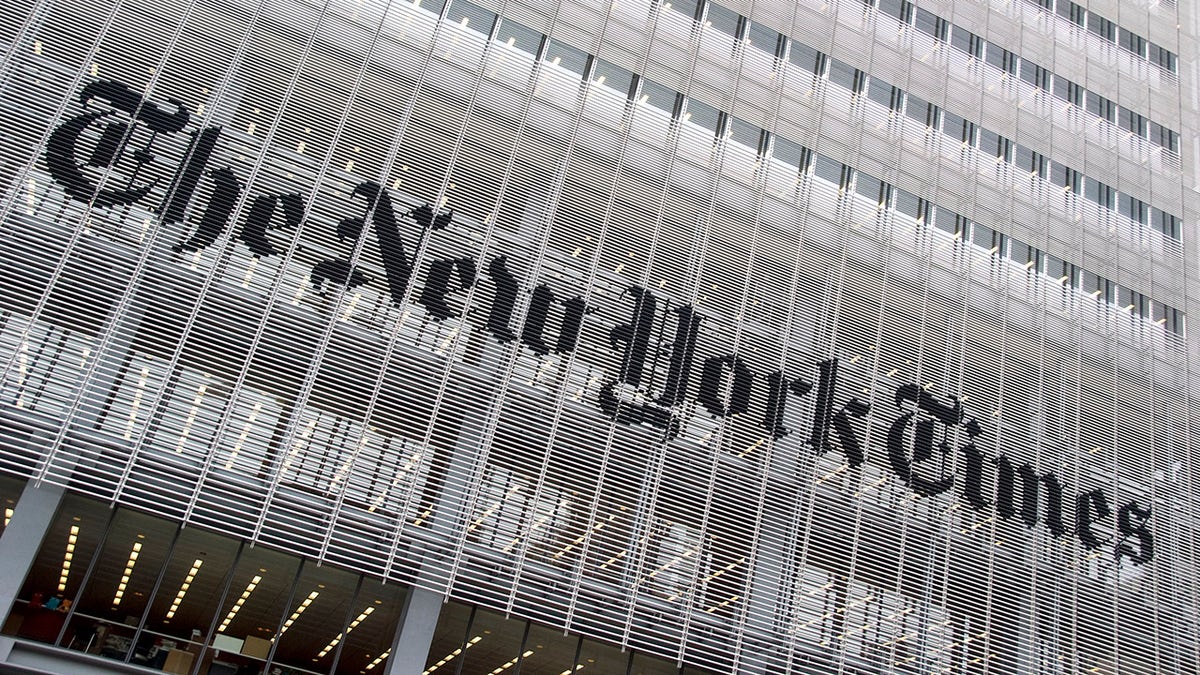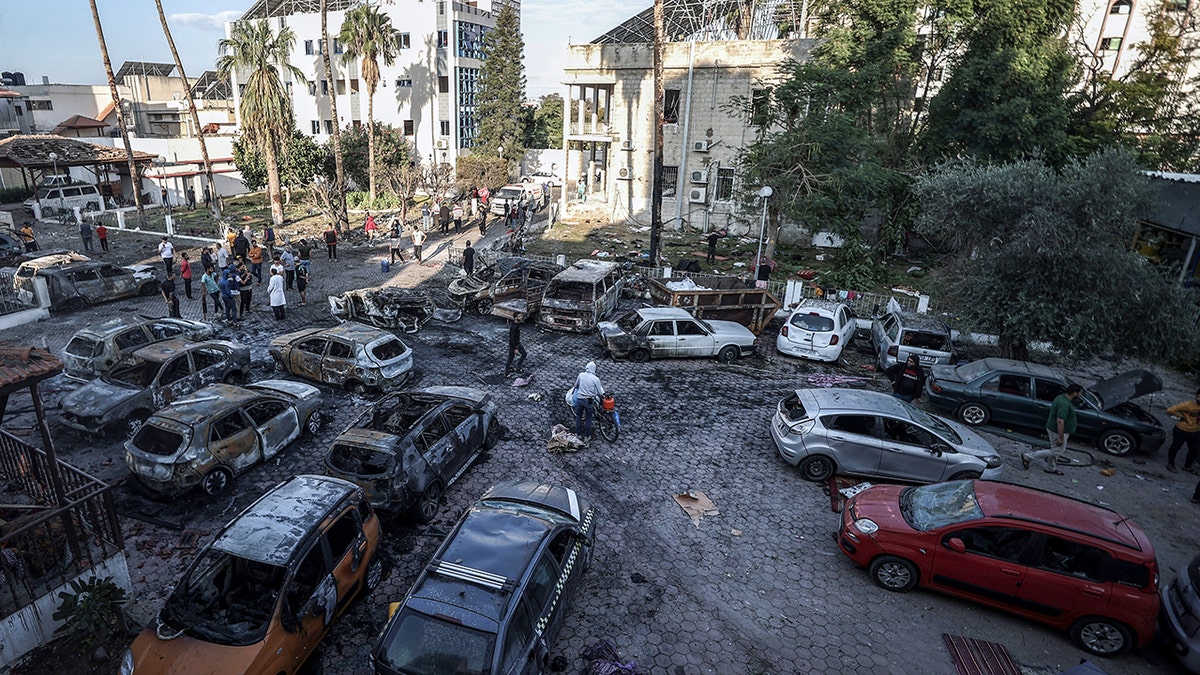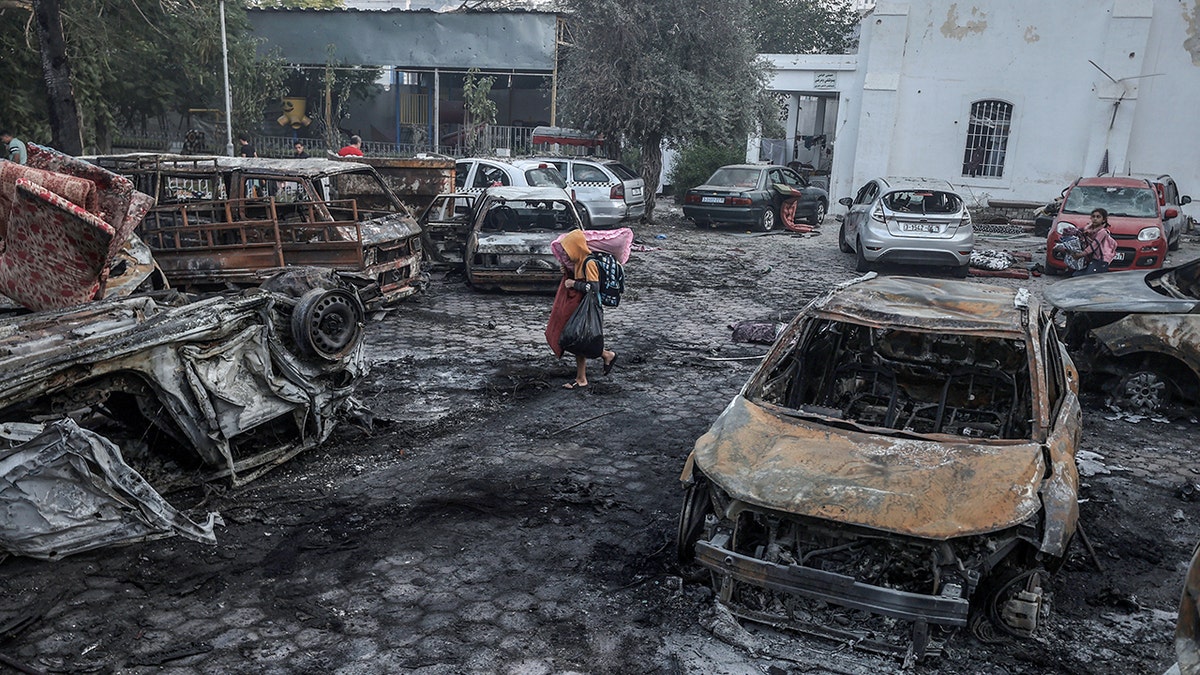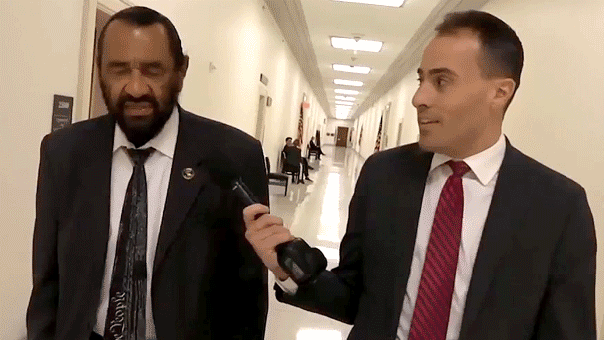Media have not taken responsibility for blaming Israel on Gaza hospital bombing: Mollie Hemingway
FOX News contributor Mollie Hemingway and Rebelle Communications founder and CEO Laura Fink discuss the U.S. media reporting that Israel was responsible for killing 500 people in a Gaza hospital bombing on ‘MediaBuzz.’
The New York Times is being accused of "modern-day blood libel" by one of its former journalists after the Gray Lady botched its coverage of an explosion at a Gaza hospital by falsely attributing it to Israel.
Alison Leigh Cowan, a reporter and deputy business editor who spent 27 years at the Times, penned a scathing piece in Commentary magazine calling out her former employer for "callously, and somewhat blithely committ[ing] at least two grave journalistic errors in relation to Israel and Gaza" in the past week, telling readers "its brazen self-assuredness and moral blindness in moments like these is breaking my heart."
The first example she gave was the Times' rehiring of freelance videographer Soliman Hijjy, who was exposed last year of repeatedly praising Hitler on social media. The Times defended its decision to have Hijjy cover the current Israel-Hamas war telling Fox News Digital, "We reviewed problematic social media posts by Mr. Hijjy when they first came to light in 2022 and took a variety of actions to ensure he understood our concerns and could adhere to our standards if he wished to do freelance work for us in the future. Mr. Hijjy followed those steps and has maintained high journalistic standards. He has delivered important and impartial work at great personal risk in Gaza during this conflict."
Cowan knocked the Times' response, "Translation: we need all hands on deck now, and if we had to pester people about everything they had posted online since they were ten or make them forswear Nazism and other noxious ideologies before we allowed them to help shape our news report, we might disappoint readers awaiting their daily fix of news. So, quit asking about how the sausage gets made, unless you want to see more recipes and word games filling out pages where there should be news."

The New York Times was blasted by its former reporter Alison Leigh Cowan for peddling "modern-day blood libel" in its botched coverage of the Gaza hospital explosion. (iStock)
"'Journalistic ‘standards’ are good things, I agree, as are second chances for people who have seen the error of their ways. But this statement is evidence of an elementary lack of standards, not the re-imposition of them," she added.
Cowan then tackled the Times' widely-panned coverage of last week's explosion at a Gaza hospital. The Times, along with several legacy media outlets, ran with the narrative pushed by the Hamas-controlled Gaza Health Ministry that an "Israeli airstrike" resulted in hundreds of dead civilians. In reality, it was a misfire from inside Gaza by the Hamas ally Islamic Jihad, which left significant damage in the parking lot, not the hospital itself, and the death toll is estimated to be a small fraction of what the Times initially reported.
"The New York Times I recalled from my years as a reporter and editor there had always recoiled from the use of what it called ‘loaded’ language that hyped facts or encouraged readers to prejudge one party or another. Some editors even frowned on adjectives because they tended to be subjective. Yet, in this case, the paper’s updates had no qualms issuing a steady drumbeat of words characterizing the ‘attack’ as ‘staggering,’ ‘horrific’ and ‘devastating,’ and a possible act of ‘genocide,'" Cowan wrote.
"Why, I wondered, were claims of nondescript Gazan 'officials,' a euphemistic shorthand the Times used to describe its sources, given higher billing and more credence than the claims of on-the-record Israeli military personnel offering tangible evidence to back up their assertions? Much of Gaza’s infrastructure is run by Hamas, a terrorist organization, but for too many days, those affiliations were glossed over in the attributions shared with readers."

The Hamas-controlled Palestinian Health Ministry falsely claimed an Israeli airstrike killed hundreds of civilians by bombing the Al-Ahli Baptist Hospital in Gaza City. (Ali Jadallah/Anadolu via Getty Images)
She continued, "Pretty soon, I felt like I was watching a modern-day blood libel take shape before my eyes. Despite the Editor’s note the paper finally posted six days after the blast, acknowledging that its editors ‘should have taken more care with the initial presentation,’ and recognizing that the ‘prominent promotion it received’ in headlines, news alerts and social channels 'left readers with an incorrect impression,' I remain fearful that much of what the paper of record published in the blast’s blurry aftermath, continuing to point blame in Israel’s direction for the hospital’s dead, will live on in the narratives and lies that have been used throughout history to justify hatred towards the Jews."
The former Times journalist went on to lament how such erroneous reports "do not go back into their bottle" and that various updates and mea culpas won't undo the damage and reverse the false narrative that has staying power.
"As late as this weekend, after other news organizations had debunked the Palestinian propaganda, there were still some quarters inside the New York Times clinging to the—dare I say hope?—that the earlier narrative might have been right, and Israel was at fault. How else to explain the epistemological insistence in yesterday's report that it ‘may be impossible to draw a definitive conclusion about who fired’ the deadly blast without rocket fragments that Hamas, alas, has failed to turn over? Followed, of course, by the reference to ’disputed claims of responsibility' in its Editor’s Note published today, October 23," Cowan said.

Several legacy news organizations including The New York Times had to walk back their reporting on the explosion that occurred in a Gaza hospital's parking lot which originated from Islamic Jihad's misfired rocket. (Ali Jadallah/Anadolu via Getty Images)
She acknowledged that "some in my profession" will shrug off such errors but pointed to the "cautionary tale" that the Times was also guilty of when it ran a false story in 1939 relying solely on Hitler propaganda that helped catapult WWII.
"Bottom line: We all stand in the debt of courageous correspondents who pursue the most dangerous and searing wartime stories out there. But journalism’s warriors must stick to the facts and leave the making of propaganda to someone else," Cowan concluded.
The Times did not immediately respond to Fox News' request for comment.
For more Culture, Media, Education, Opinion and channel coverage, visit foxnews.com/media










































